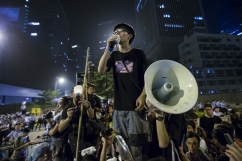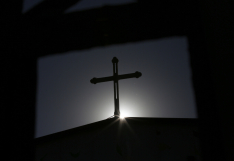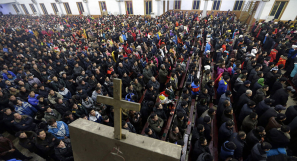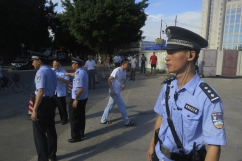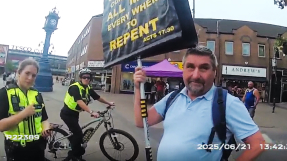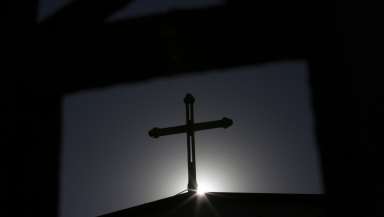
A house church in China has been branded illegal by local officials and forced to stop holding meetings.
The church in Dazhou, Sichuan province, was told last month that it may no longer rent an apartment to hold religious services. Its members are accusing authorities of restricting their religious freedom.
Li Shengfen, who attends the church, told advocacy organisation China Aid: "They looked at our Bibles. After that, in order to understand our church, they looked at our poetry. Because the place where we worship has a cross, a Bible and some scripture on the walls, they looked at it all.
"I said 'Right now, is this freedom of religion?' If we go to the city to meet, many of the Christians are old and some people get carsick. I said, 'How can you not give us freedom?'"
Li said the local government has told the church to apply for registration, but because the church has less than 50 members, it is not required to do this by law.
Li complained to officials but was told that the church would not be allowed to continue meeting.

Human rights groups have highlighted extensive abuses in China under President Xi Jinping's leadership, particularly the suppression of religious freedom. Although the right to freedom of religious belief is guaranteed under the Chinese Constitution, that protection is limited to those who worship within state-sanctioned religious bodies. Those who choose to practise their faith outside of these, or whose beliefs are not officially recognised by the government, are at risk of being accused of participating in illegal activities, which carries heavy punishment.
Campaigners say the Communist Party is becoming progressively more suspicious of the influence of Christianity, which is experiencing significant growth in the country.
Up to 1,700 churches have been demolished or had their crosses removed in Zhejiang province in the east of China as part of a three-year 'Three Rectifications and One Demolition' campaign, supposedly with the aim of exposing and removing "illegal structures" in the region. More human rights activists and lawyers – many of whom worked on behalf of these churches – have been arrested in the past two years than in the previous two decades combined.










